To commemorate the 100 years since the end of World War I, Blesma has brought together its Members to celebrate their lives, triumphs, service and fortitude through a series of photographs, interviews and stories to create a very special edition of our Blesma magazine.
Our 178-page commemorative issue of the magazine features photographs and real-life stories from wounded veterans of all ages, conflicts, nationalities and disabilities who have overcome adversity in their own unique ways with the support of Blesma. Through their powerful and inspirational stories, each Member tells their own tale of how an Association that was born out of the aftermath of WW1 is still vital and helping veterans one hundred years on.
General Sir Adrian Bradshaw KCB OBE, who is National Chairman of Blesma, The Limbless Veterans, said: “This special edition notes the journey Blesma has taken as an Association in assisting more than 62,000 injured veterans since WWI and, most importantly, it highlights the service and fortitude of the current membership.”
After the guns had fallen silent at the end of the war, injured veterans, continuing the spirt of camaraderie which helped them survive the appalling conditions, extreme danger and trauma of four years of trench warfare, came together to form support networks when there was no support from the state. Their comradeship forged in the darkest hours, as well as a desire for justice for the 40,000 men who lost limbs in the conflict, they laid the foundations of an organisation that, 100 years on, is still hard at work for veterans.
HRH The Duke of Gloucester KG GCVO, and patron of Blesma, The Limbless Veterans, said: “This Special edition of the Blesma magazine is a snapshot of the Association today, displaying what defines the Members as they live beyond injury. I am proud to support their triumph over adversity.”
Born out of WWI and brought to life by every Member since, this is Blesma one century on...
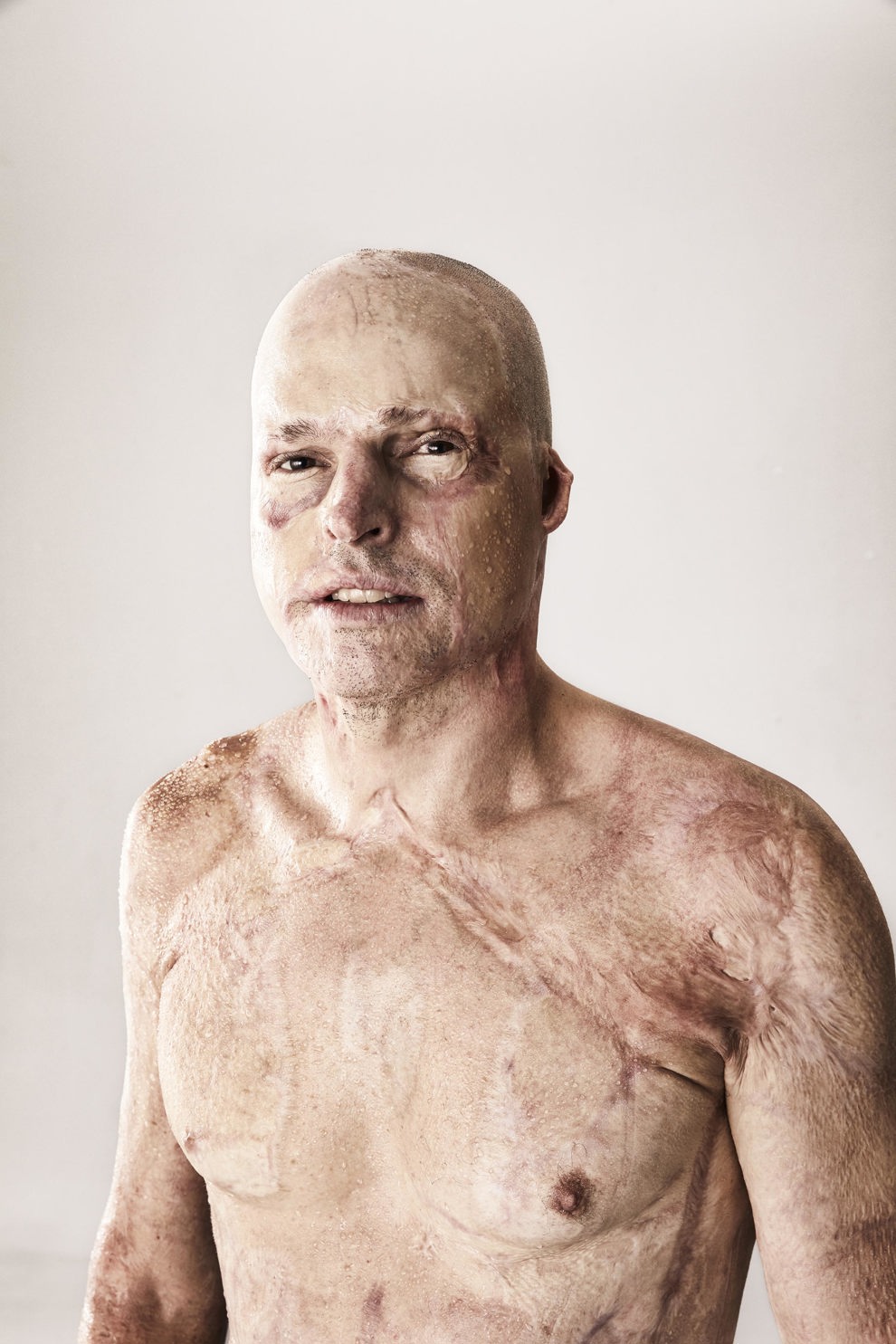
The horrific third-degree burns that Jamie Hull suffered over 60 per cent of his body in an aircraft fire almost cost him his life. The doctors gave him a five per cent chance of survival and, as he admits, it took an “epic journey, and an inordinate amount of grit, determination and willpower” to pull through.
After his recovery he almost lost his passion for diving, too. “I first tried it as a backpacker in my early twenties, and I got bitten badly by the bug!” says Jamie, who ended up making a living from the sport in some of the most beautiful reefs and oceans across the world.
“Later, when I joined the Thames Valley Police and had a more ‘normal’ career, I was always thinking about diving, and dreamed of getting back into the industry. I eventually took a sabbatical, qualified as a PADI instructor, and worked in Egypt and the Philippines.”
But after his injury, Jamie “completely lost my confidence to get into the water. My mojo was gone - it takes a huge amount for fragile skin to recover from third degree burns like mine. I can’t emphasise enough how debilitating it is. And I was so, so worried what the corrosive salt water might do to me. So, I just decided not to risk it.”
But five years on from the 2007 incident, after being invited along on a dive by some old scuba buddies, Jamie decided to give it a go. “I was so worried,” he says. “I thought my skin might come off with the wetsuit! Waiting to jump into the water was incredibly nerve-wracking. It took all my courage just to get the suit on and take that giant stride into the ocean. But I did it.”
To his delight, the skills soon came flooding back – and he realised the sea water was actually beneficial to his delicate skin. “I found that out to my joy and astonishment!” he says. “It was a therapy in itself! The water was my friend again.”
Jamie is aware of the huge distance he has come since that fateful day back in the plane. “Back then, I was part of 21 SAS, and an active young officer in the Thames Valley Police,” he says. “I had an ambition to learn to fly, so I went out to Florida to complete a course. I was eventually allowed to fly solo, but one day, an engine fire at an altitude of 1,000ft breached the cockpit. As I made a concerted effort to bring the plane down, I sustained the burns. I had two or three dark years after that and underwent 61 surgeries.”
Blesma played a big part in Jamie’s journey back into the water: a trip to the Red Sea with the Association helped reaffirm his love of diving, and he has since helped out on some of the Association’s diving trips. “Blesma’s scuba diving programme really does have great scope because it’s an activity that is accessible to people with almost any form of disability. Once you’re underwater, you’re completely weightless, so it doesn’t matter if you’ve got limb loss because you can use the rest of your body to compensate.”
Jamie is now fully immersed – quite literally – back into that watery world and is aiming to qualify in 2019 as a PADI course director.
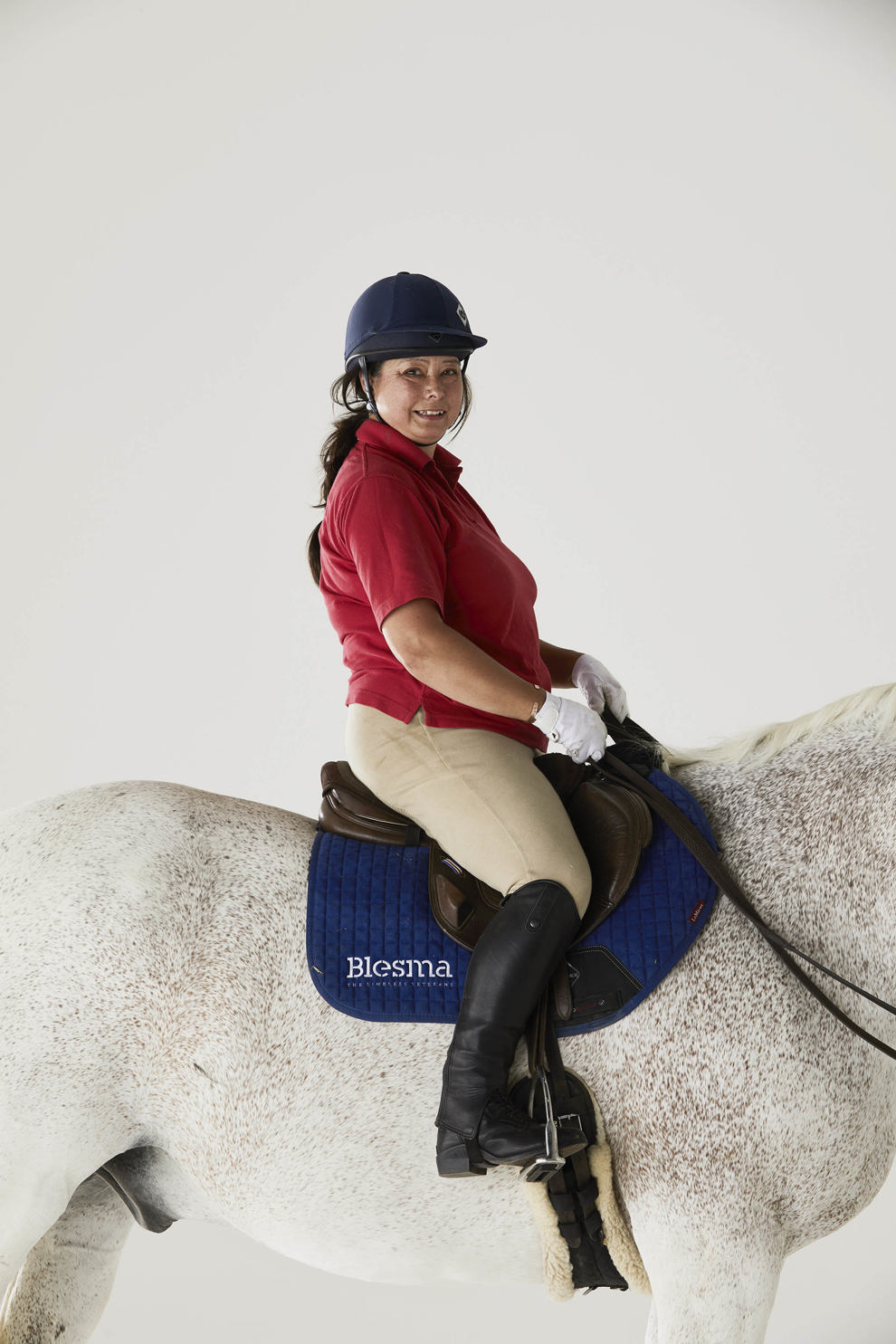
Susi Rogers-Hartley is a very experienced horsewoman who was injured in 1998 while serving in the Royal Navy. She has adapted to her severe injuries and has gone on to become one of the UK’s top disabled riders.
"I’m from Norfolk and have always ridden horses. When I was 13 years old, I worked for the trainer Ginger McCain, who became famous for training Red Rum, and I was lucky enough to ride the Grand National winner just after he retired. When I grew older, I became a professional rider and competed in eventing and racing, polo matches and show jumping. When I needed a change of scenery, I thought I’d take advantage of being fit (and getting paid to stay fit!) so I joined the Navy when I was 30. I really enjoyed it until I got broken, two years in. I don’t like talking about my injury, it’s enough to say I was crushed and then didn’t get the right spinal treatment. I carried on with shoreside duties in a wheelchair, but I was eventually discharged."
Susi went from being a very outgoing person to being incredibly introverted, "I didn’t think I was going to live. I was housebound, immobile and living in pain. I tried to end my life because I couldn’t cope. I’m not sure what happened after that, but I realised that I could either stay at home and eat biscuits for the rest of my life, or I could try and do some of the things that used to make me smile."
"I didn’t think I’d ever ride again after my injury, but I decided to give it a try. Logistically, it was difficult – I had to teach myself from scratch. My brain still knew what to do, but my body couldn’t do it. But I ended up becoming a coach for the Special Olympics and in return I was given riding time. Having time on a horse again was brilliant. I got my first horse, William, in 2006. I bought him after he was retired. It was a baptism of fire! I had to work out how to get on him because I was 3ft high in a chair, rather than 5ft 8in. It was trial and error. I got a wheelchair that raised up, then I’d try and jump! Sometimes I’d fly over the other side, with William staring at me. I figured it out eventually."
"Then I got Seamus [pictured]. He’s quirky and a bit of a diva. He didn’t like the wheelchair at first, so for a while I had to be carried to him, but we got used to each other. Since then, we’ve been all over Europe competing. I feel freedom when I’m riding because I’m away from the wheelchair. I can cover terrain, I can go at speed, I can jump fences. Nobody knows I’m disabled either, so it’s a level playing field. Horse riding is my passion, and it has opened up all sorts of opportunities for me.
This has been the best year I’ve had with Blesma. I got involved in the Graeae theatre production, which was absolutely wonderful, I just loved it. I’ve learned to act and sing – a month ago I didn’t know I could sing, now I’m a soprano! If Blesma does more of this kind of thing, I’m in!"
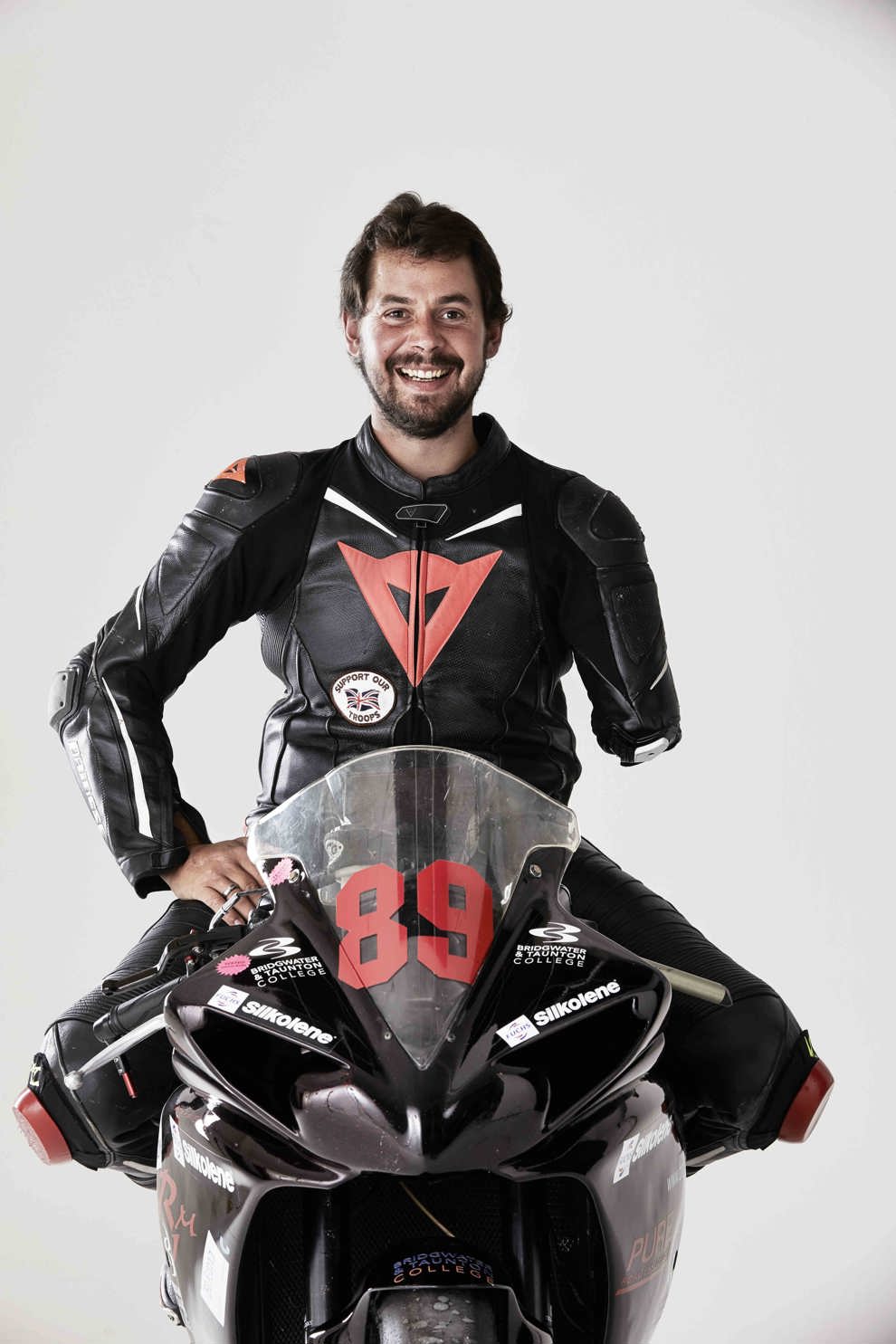
Chris Ganley lost his left arm above the elbow in a motorcycle crash in 2014. He quickly got back on his bike though, and has his sights set on racing in the infamous Isle of Man TT.
"I always wanted to be a soldier. I joined the Cadets when I was a kid and served in Afghanistan with the Territorials while working in Public Services. My grandad was a Sergeant, and I decided to join the Regulars after that tour. I went out to Afghan again in 2011 with 1 Rifles, which was full on.
Then, in 2014 I was injured on my bike. I had a crash at 30mph. I hit a lamppost, which took my left arm straight off. My right arm was close to being amputated, too. I also broke some of my ribs and my back in three places. I damaged a lung and had a severe brain bleed, which means I am classed as having brain damage."
"In hospital, it was knowing that I wouldn’t serve in the Army any more that upset me the most. That had been taken away from me and I didn’t want my other love – motorbikes – being taken, too.
Losing my arm was a shock, but I had to get on with life, so I sat and worked out ways to do it. I had to relearn how to walk because my balance was off, but I also had to relearn how to do everything from tie laces to peel potatoes. As part of that, I managed to strip my bike and put it back together in a way I could use. My local garage then made some improvements. Six months after my injury, I rode again. I did try and reach for the controls with my missing arm once and burst into tears, but I put in lots of practice until I could ride again. I’ve just somehow managed to adapt. And now I’m racing at a good level… in Thundersport GB. The biking community has been very supportive and impressed with my times."
"I would love to become the first arm amputee to race at the Isle of Man TT. It was always my dream to compete in the Manx GP and then the TT before I was injured.
Without Blesma, I’d only have had enough money to take part in a couple of races this season. After I did well in my first few, Blesma got behind me. If I keep achieving, I hope they’ll back me all the way to the TT! I owe Blesma a lot. I’m much more confident this year but know that there’s still plenty of room for improvement, so I’m really excited about the future."
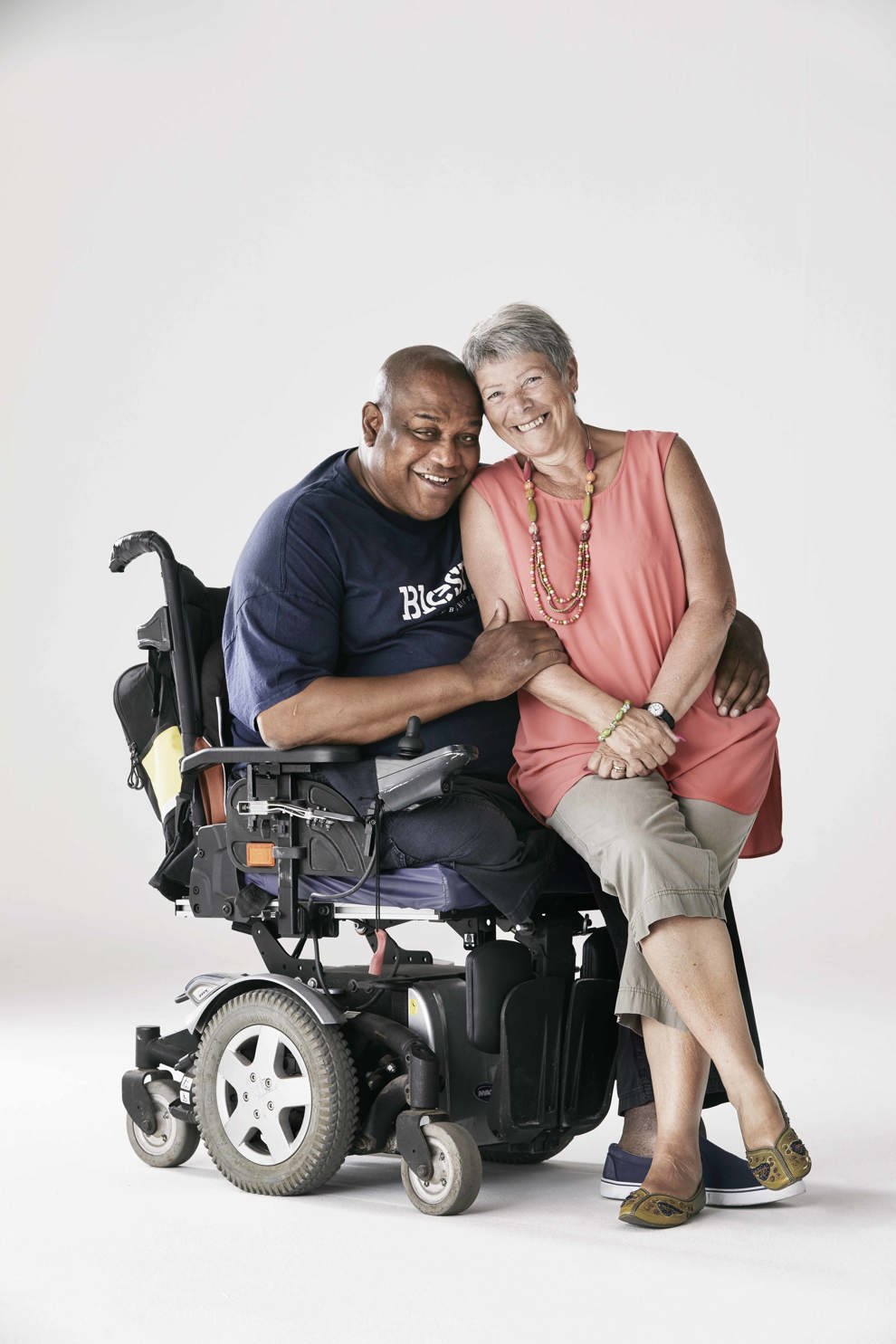
When Angus ‘Jessie’ James recounts the story of his life to amazed groups of students on the Blesma Community Programme, he often opens his speech with a loud scream. He’s trying to get across the shock of the moment that changed his life; being run over by a Land Rover in Canada while serving in the nineties.
“I often just shout; ‘AAAARGHHH!’” laughs Jessie. “I remember the air being forced out of my body. I only knew I was going to survive because my sense of humour came back quickly. When a doctor asked for four soldiers to carry a stretcher, I told her; ‘You’re going to need 10!’”
Jessie knew straight away that his Army career was over and being medically discharged hurt almost as much as the accident.
“After I joined the Army at 16, I knew I was in the right environment. I loved it. I went to Belize, then began to work my way up the promotion ladder.
I was eventually doing logistics for a whole company; 110 fighting men. That’s when I got run over. I had damage to my back and neck, my eye was hanging out, and the incident gave me PTSD. Mentally, I started questioning lots of things, my mind started going in the wrong direction.” Jessie admits to being a “lost soul” after he was discharged. “I bounced from job to job, but eventually the pull of a military-style life took me to Iraq as a civilian risk consultant. I did that for seven years, but my PTSD came back in a major way,” he says.
During his stressful work in the Middle East, Jessie contracted gangrene in his foot but didn’t notice. “I started to feel really bad, but by the time I got it checked, the gangrene was in my bones. I was told in 2014 that they’d have to remove my leg above the knee. Since then, I’ve gone from being an athletic bloke to catching every cold that’s going. My kidneys only operate at 30 per cent, I’ve had heart failure, and have lost the sight in my right eye. That’s a lot of ailments to cope with, and I get very depressed. I’m a sod to live with and sometimes get lower than a snake’s belly!”
“After the amputation I was completely lost,” he says. “I’ve made a lot of use of Blesma because I feel like I’ve really needed the support. The activities are fantastic. You go along to an event, meet people for the first time, and soon after that you’re best friends. You have a bond! Fishing, quad biking, and especially photography – I’ve joined the photography group, bought a camera, and become particularly enthusiastic. I see the world in a different light since Blesma opened up my artistic side!”
Jessie is also looking forward to paying his respects at this year’s Remembrance Day, having recently discovered a family military link. “I found out that my grandfather, Westmore James, won medals while serving in the British West Indian Regiment. I’m hoping to wear them at the Cenotaph as part of the Blesma group. That will make me really proud.”
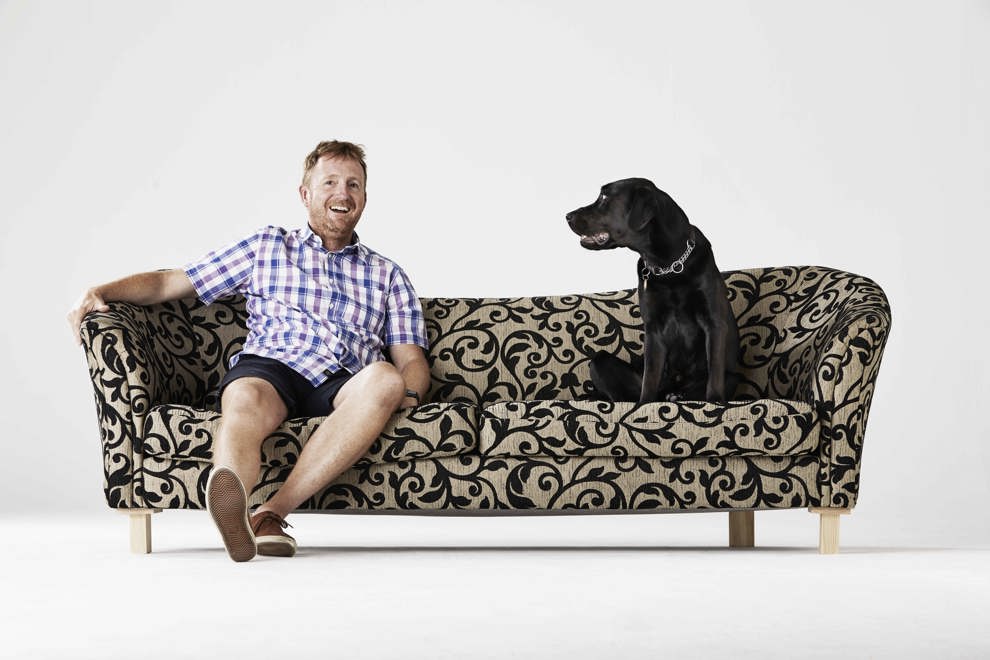
Jamie Weller realised that he was going blind in the most inconvenient of places. “There I was, driving along a dual carriageway, when I suddenly saw a car coming right at me,” he says. “I thought; ‘That’s strange!’, but then realised I wasn’t on a dual carriageway, I was on the wrong side of the road! My retina nerves had started to deteriorate. It was a shock!”
Londoner Jamie, who was training to be a Sea Harrier Aircraft Engineer managed to get off the road safely. But, at the age of 20, he realised his dream job was about to disappear. “I’d joined the Royal Navy at 18, and was top of my class in aviation engineering,” he says. “After noticing problems with my eyesight, I went to the medical officer and he told me my central visual fields were being lost. I went to a consultant at Moorfields and was told the life-changing news that the damage was permanent and irreversible. I regretted losing my naval career more than my sight.”
Jamie has joined the Armed Forces Para Snow Sport Team and competes in Para Alpine and Nordic skiing for Great Britain. He competed in cycling and athletics at the 2017 Invictus Games, and he climbed to Everest Base Camp last November. I never say I’m a disabled person, I am a person who can’t see well. I manage my blindness, I don’t let it manage me!”
“The Association has helped me with some financial things, it’s a great charity. I want to do the Community Programme soon. I’d like to become a motivational speaker and share the story of my resilience. I think talking to school kids would be good for me and be beneficial for them too. “Blesma is great at setting up things like that – win-wins for everyone involved!”
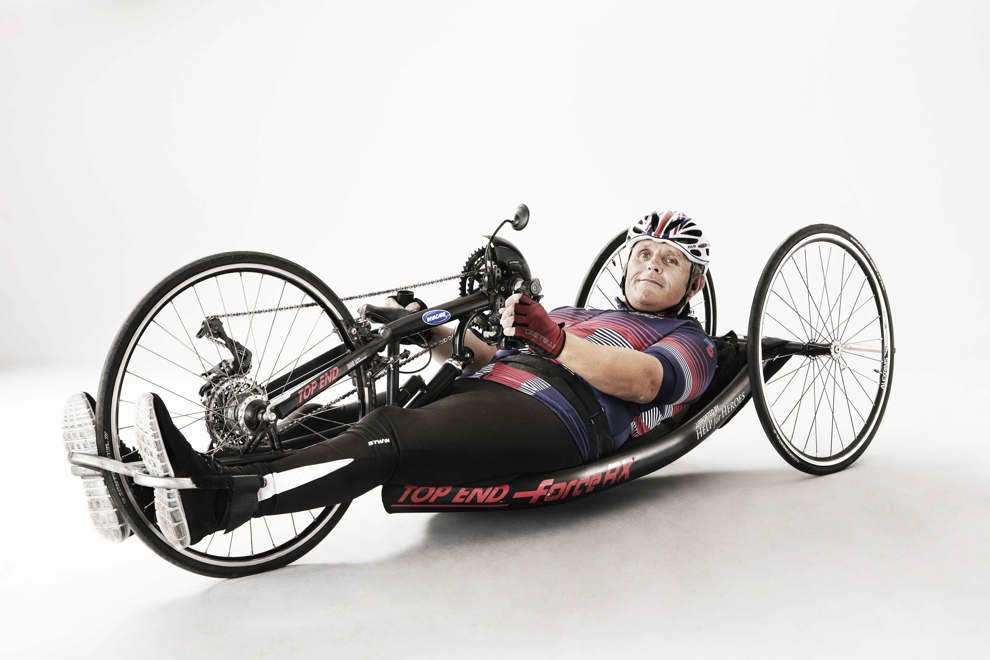
Luke Delahunty joined the RAF when he was 17 years old ,6 years later he was seriously injured.
“It was in October 1996. I can’t remember the accident, although I have been told about it since. I had woken up late that morning. I got out of bed, got dressed, and jumped on my motorbike. I was about a mile away from the base when I started to overtake a line of traffic that was stuck behind a tractor. The tractor turned right in front of me, and I went underneath the 18-tonne trailer. It broke my spine.”
"I was paralysed from the chest down. I spent two months in intensive care and in my more lucid moments – through all the morphine and drugs – I realised something pretty serious had happened to me. The doctor who told me was so blunt about it. He stood at the end of the bed, didn’t introduce himself and just said; ‘You are never going to walk again.”
Luke was discharged in 1998. After rehab his next step was to find a suitable job; “I did some training in IT and computer maintenance, as well as graphic and web design, I worked for local newspapers and Stoke Mandeville hospital, educating patients and their families as part of their rehab. I was proud to work at the hospital where I had my rehab. Now I work for Sports for Schools which came about from having competed in the Invictus Games.”
“I love cycling long distances and have made lots of friends and had some great opportunities through the sport. I’ve ridden all over Europe and have even taken part in the Invictus Games.”
"My first Blesma activity was Soldier Ride New York in 2014. That was a mind-blowing experience; I’ve been injured for 22 years now and that’s still one of the best things I’ve ever done. The only thing that perhaps surpasses it is the Blesma Community Programme. That is all about helping others, even though I still benefit. I get to teach really important life lessons about resilience and overcoming adversity to young people. To be able to help someone to become more resilient before they need it, to give them the tools they might need, is a fantastic opportunity.”
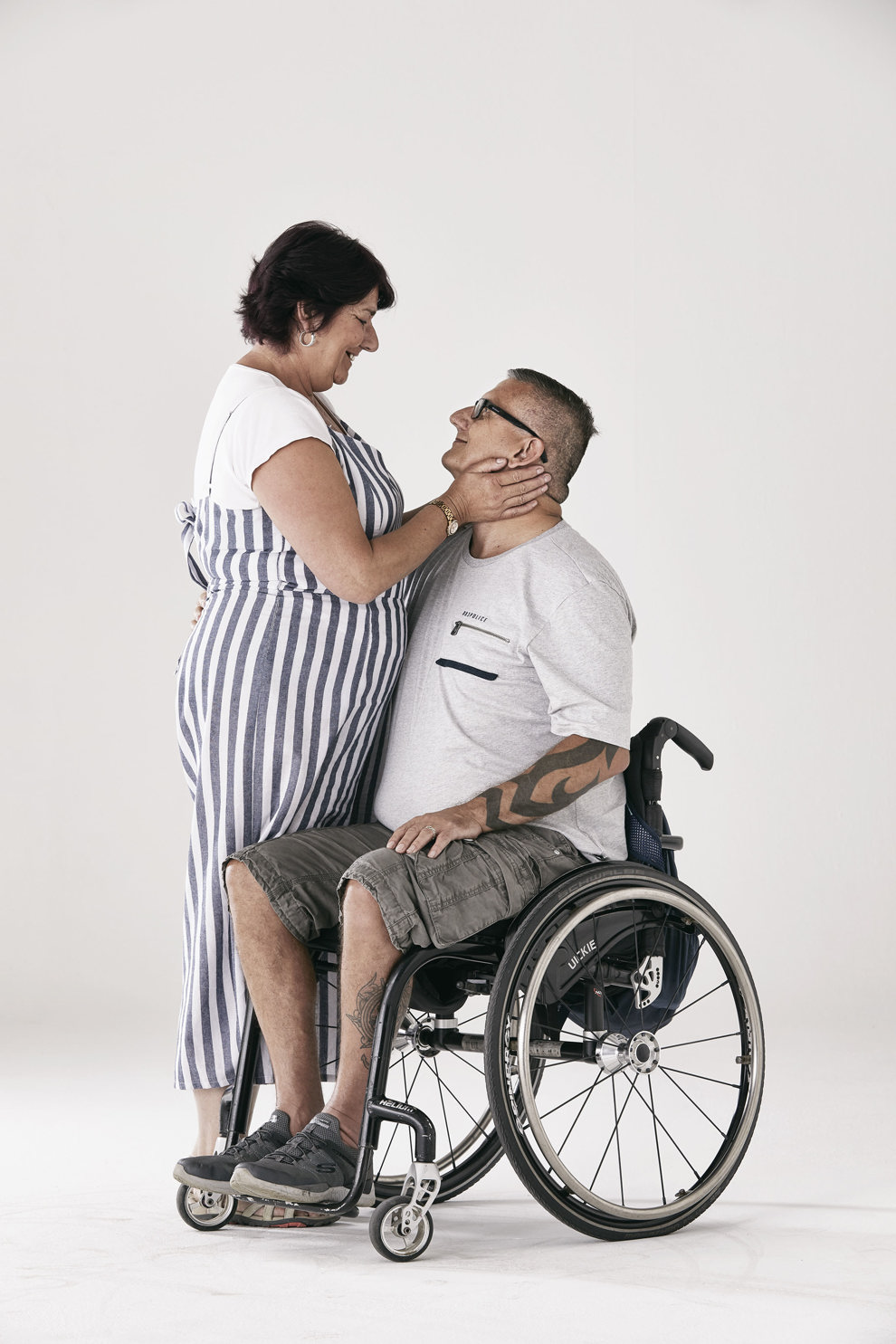
Andrew Haugen, from Barnsley, served in the Royal Navy but eventually had to leave the service after developing multiple sclerosis.
“I always wanted to go to sea! I grew up in Scarborough, and my dad was a Norwegian Merchant Navy officer. We lived in Norway when I was very young and then moved back to the UK. I still remember summer holidays on my dad’s ships, we would go all over the world. At school, I was told that I’d have to wait a while to join the Merchant Navy, but I didn’t want to wait.”
“I had also fancied joining the Royal Navy, so I did that instead. I joined up in 1980, when I was just 16 years old. I loved every single minute of it – particularly being at sea. I was in for seven years, and I was gutted when I had to leave. I travelled all over the world – the Falkland Islands, South Georgia, the Caribbean, the USA, South America, Norway, Gibraltar, around Africa... You really do get paid to see the world in the Navy!
I suddenly went blind in one eye – that was while I was still serving. At the time, the medics didn’t tell me what it was connected to, that it was a sign of MS. I was allowed back to sea even though the military knew I wasn’t right. In 1985 I had another flare up, and that time they told me.”
Coming to terms with the illness was very difficult. It took a long time, and it affected my relationship with my family - I’ve been married to my wife, Marie, for 33 years, we’ve got two kids and four grandkids. Eventually, once I’d accepted the diagnosis, things got better.
By the time I left the Navy I’d pretty much lost my mobility and was in and out of a wheelchair. I was in bed for 15 months at first. There were a lot of hospital appointments and rehab sessions. But I’m not one to do nothing or wallow in self-pity. I had some talent for art, so that kept me sane. I found work with the Amiga computer group, designing demos for software packages but I couldn’t always commit to long-term projects because I didn’t know if I’d be well enough to finish them."
"My next-door neighbour is a Blesma Member, as it happens, and he hounded me into joining. My BSO eventually came around to have a chat, and now I think joining up was the best thing I could have done. I’ve always had a camera and been interested in taking photos, so the photography group really appealed to me. I get out, I meet people, I see new things. Blesma bought me a camera, which is just fantastic. I love the company; the humour makes me feel as though I’m right back in the Navy!"
We can help
We are dedicated to assisting serving and ex-Service men and women who have suffered life-changing limb loss or the use of a limb, an eye or sight. We support these men and women in their communities throughout the UK. Click the link below to find out the different kinds of support we offer.
Get Support
Leave a comment
Join fellow Members and supporters to exchange information, advice and tips. Before commenting please read our terms of use for commenting on articles.